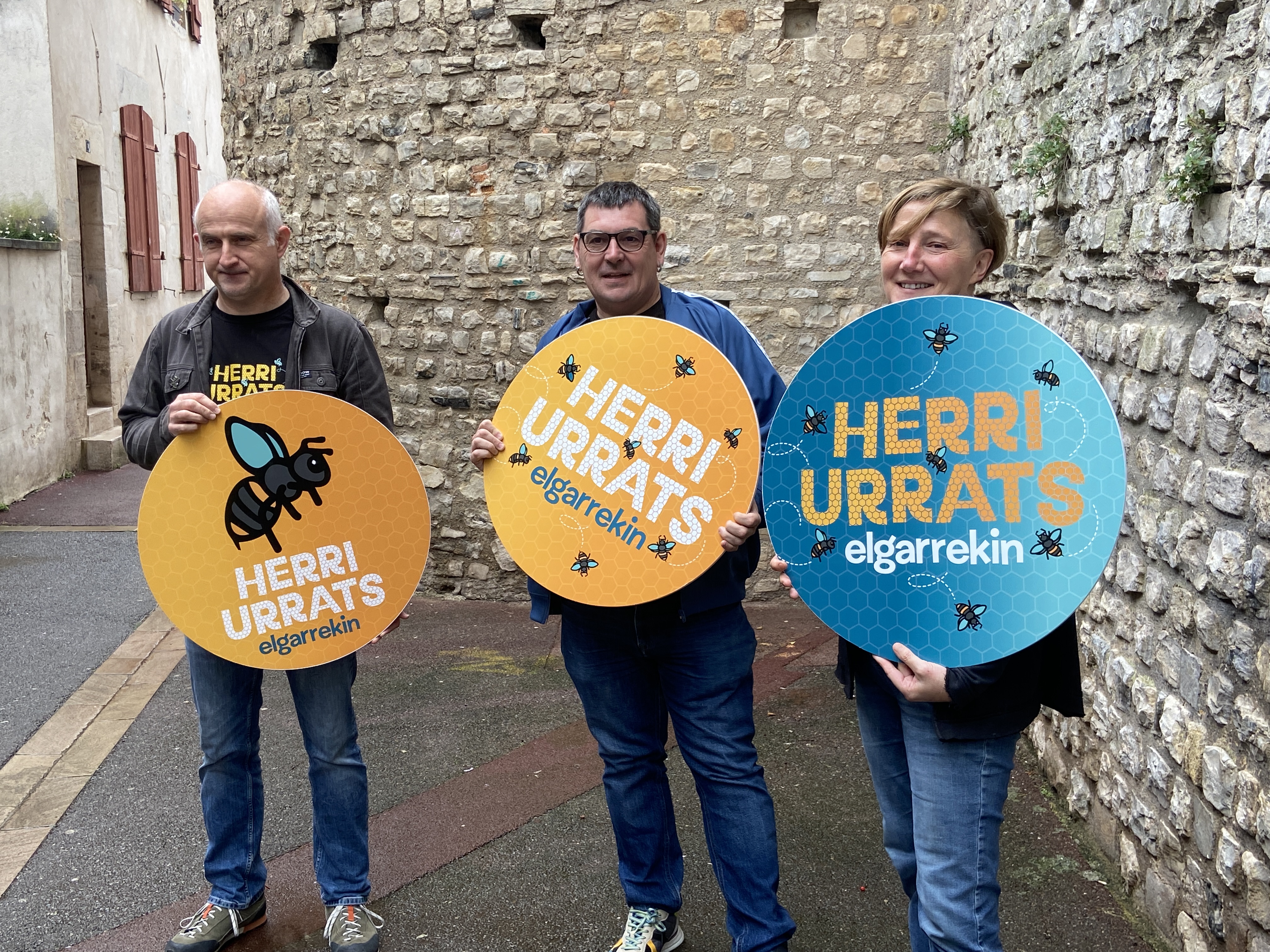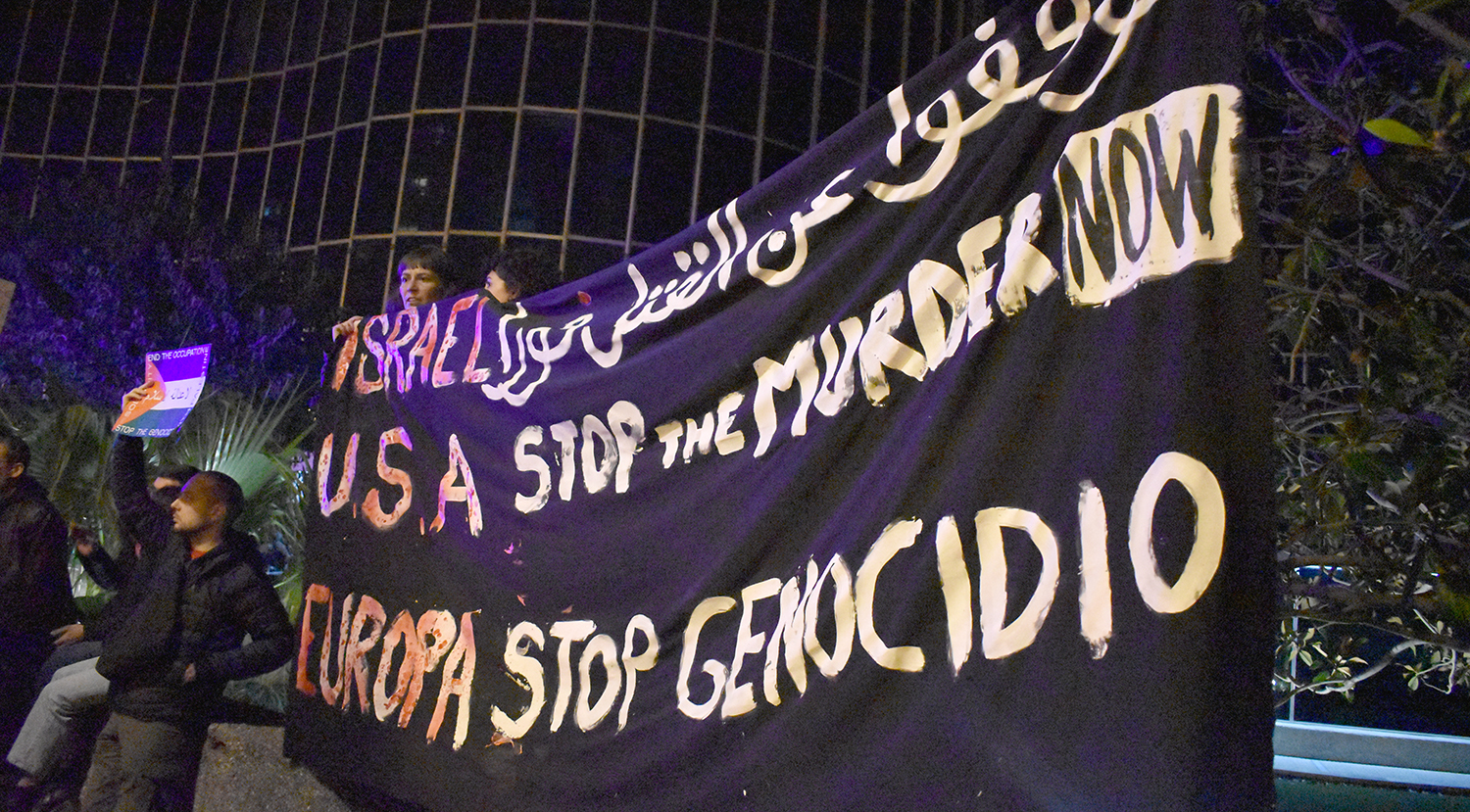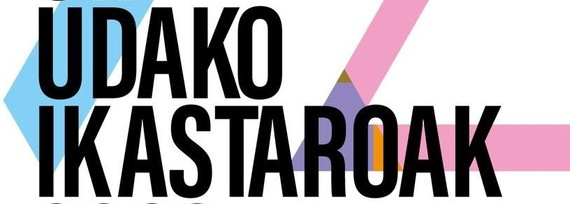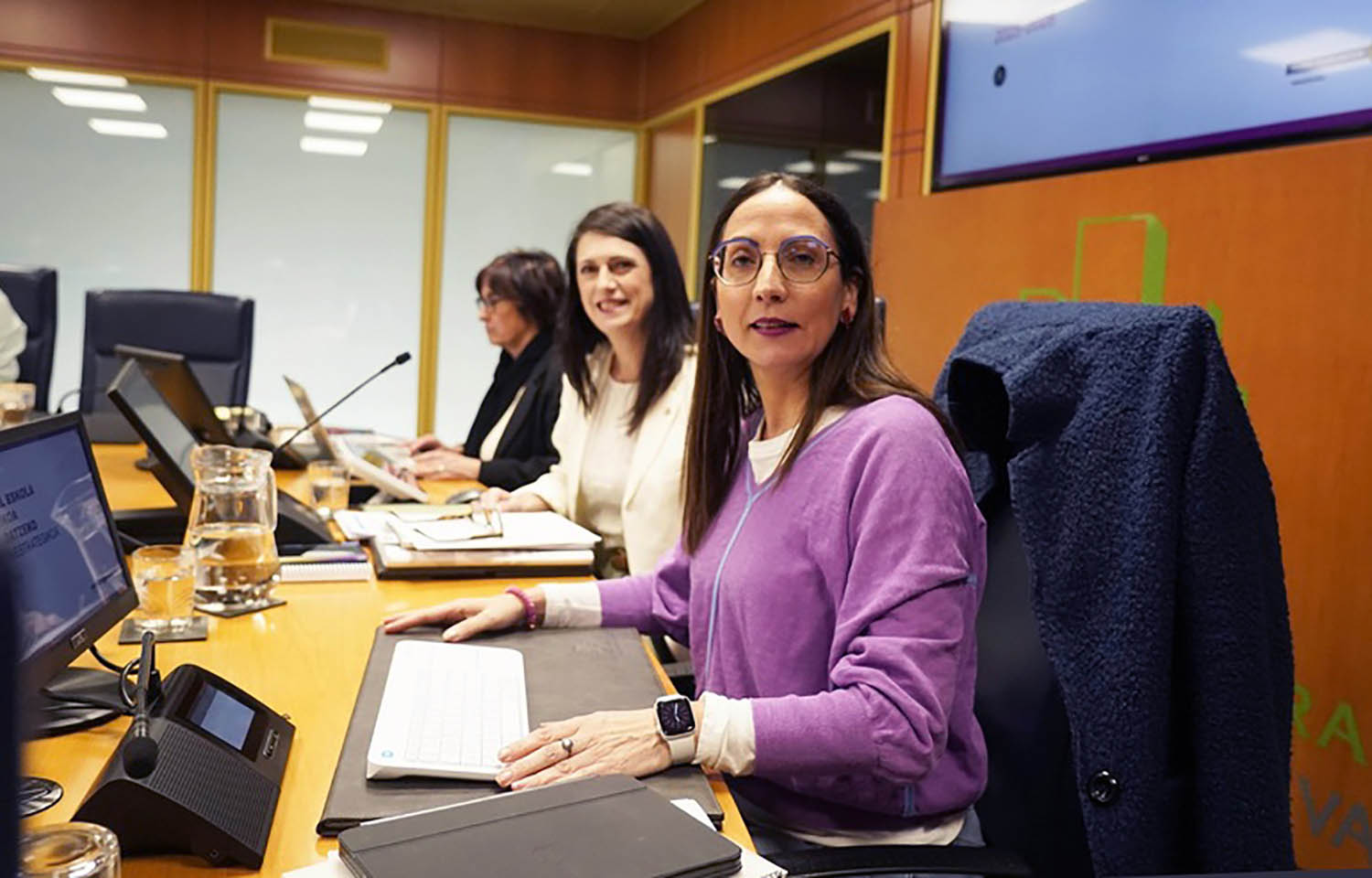[Innocent] Government wants to delegate part of teacher training to the Ertzaintza academy
- The Government ' s Department of Education and the Department of Security have drawn up in collaboration a draft proposal to adapt the training of CAV teachers to new educational needs. From the 2024-2025 course, the departments led by Jokin Bildarratz and Josu Erkoreka propose the teaching at the Arkaute Academy of two subjects of the Master in Education of Teaching Faculty necessary to work as a professor and the new psychotechnical test necessary for the Master's Test. ARGIA has obtained the report exclusively, knowing that it is still in the ‘debate’ phase within the government. ARGIA has contacted the Security and Education Departments, but they did not want to make any statement.

“The next logical step in the growing competence that Ertzaintza has acquired year after year in terms of training and pedagogical values” would be for those who wish to exercise as teachers in the CAV, to be able to make part of their training in Arkaute, as the report states in the introduction. After ETA's activity ended, in 2011 the academic training of the Ertzaintza in Arkaute for firefighters and ambulance drivers began, in 2012 for Civil Protection volunteers, being the last decision to transfer the training of all the local police to the police station in Vitoria.
It would be “reasonable and natural” for teachers to receive police training, according to the Education and Security departments: “The Ertzaintza is responsible for the care of all citizens and, in a broad sense, for education; teachers are responsible for the care and education of children and young people: promoting mutual knowledge among each other and the unification of pedagogical criteria is a guarantee of a democratic society.” But the report also stresses that the proposal seeks to respond to some “worrying trends” that are taking place in Basque society.
"The Ertzaintza cares about the care and education of all citizens; the teachers, in children and youth: the unification of pedagogical criteria is a guarantee for a democratic society"
Freedom vs authority
According to the report, society risks falling “in the sense of misunderstood freedom, in the sense of disrespect for authority”. Evidence of this is the “proliferation of capricious children who know no borders”, the “culture of hedonism” that would dominate among young people, and the increasingly pressing problems of maintaining the order of teachers in classrooms. But the “problem” is placed by the government beyond the areas of minors and education.
Education and Security endorse the complaint made by the police unions ErNE and SVPE. “The Ertzaintza and the Local Police are suffering a permanent loss of authority,” the unions said, and assured that the loss of authority was spreading in society at large. “There is a continuum in the attitudes of Protestants who do not obey the orders of the parents, who resort to an inertia strike against students, companies and institutions that circumvent the standards of teachers, and who disobey police orders: the problem is general, the solutions must be general,” says the Government’s draft.
.jpg)
"Reticence" generated by the "culture of terrorism"
Although the collaboration between the Security and Education departments comes from afar, ETA took a qualitative leap since it left the armed struggle, the report explains. If until then it was an exception to see the Ertzainas in the classrooms in pedagogical tasks, starting in 2012 it became common. The Department of Security developed a program for Ertzainas to give talks in schools, like bullying, traffic regulation, male violence...
Former counselor Estefania Beltrán de Heredia (2012-2020) launched the program after the controversy provoked by an ertzaina who was teaching a course against the Bullynga for threatening a Elementary School student with a hair: “The intention of the program is twofold: on the one hand, to offer children and young people educational tools to respect the norms and their peers; on the other hand, we want young people and teachers to normalize the presence of the police in society and therefore in school, as it happens in any democratic society.” The counsellor then explained why such standardization was needed: "The culture of terrorism has sometimes generated mistrust and distancing between the Basque police and the educational community, and it is time to eliminate it."
"The culture of terrorism has sometimes generated mistrust and distancing between the Basque police and the educational community, and it is time to eliminate it"
The Government’s proposal would be a “new qualitative leap” to strengthen this direction, according to the Education and Security Departments: “The Ertzaintza will go from participating directly in the education of students to being part of the teaching staff.” The Departments of Security and Education anticipate difficulties in taking this leap, but consider that they could overcome them: “The teaching staff is a sector that tends to strengthen itself, often has shown resistance in collaborating both with pedagogical innovations and with the police, but we are convinced that these resistances are superable.”
Subjects
In order to exercise the teaching function, it is essential to carry out the Master's Degree in Training of Teaching Faculty. The report proposes the creation of two compulsory subjects for this master's degree and its teaching in the academy of the Ertzaintza de Arkaute (Vitoria, Álava). One of the subjects would be “theoretical” and another “practical”.
The first, theoretical, Democratic values in education: rights and limits: “The subject would aim to promote reflection and provide clear criteria on the necessary balance between freedoms and duties.” The report envisages the possibility of developing the subject in collaboration with the business association Confebask, arguing that the company, school and public institutions share the same basis and are complementary: “In all three, the balance between freedoms and obligations is essential, the three share objectives and values, the three strengthen or weaken each other.”
The second practical subject would be Educational techniques for the intervention of disruptive students. The matter responds to a demand from the Berritzegunes for support for Educational Training and Innovation, according to the report: “In 2019, the Berritzegunes received for the first time by the faculty requests for training in basic care techniques to defend them against students who forget them physically and maintain order in the classroom. Between 2019-2022 these requests increased by 17%.” The subject would be taught by the Human Rights Department of the Mobile Brigade of the Ertzaintza. Techniques of “winged hand” (“if not defensive elements”) and “always with the minimum use of necessary force” would be provided.
"In 2019 the Berritzegunes received for the first time by the faculty requests for training in primary care techniques"
The Government expects each subject to have nine credits, in person. In principle, students would move to classes, but the report does not exclude the extension of vacancies at the Arkaute Academy so that “future teachers know in practice the internal functioning of a school based on democratic values and nurture the affinity between Ertzainas and teachers”.
Psychotechnical test
The main novelty provided by the proposal to adapt the training of CAV teachers to the new pedagogical needs would be a psychotechnical test that, once the master's degree is passed, should be performed by future teachers. “The use of psychotechnical tests is common as access to employment in various private and public professions,” the Departments of Security and Education recall, and defend with a parallel the implementation of the teaching profession: “The monopoly of the use of violence is an indispensable and delicate responsibility in democracy, and the psycho-technical test that is done to the police guarantees that this power is delegated to strong but amult arms, and in heads, both ethically and psychologically balanced. The monopoly of the use of teaching is no less responsible and, consequently, we need the same democratic guarantees as a society before the teachers”.
The Government’s report contains a number of possible questions and exercises of the test, stressing that this is only a “representative sample”, which, once the project has been approved, must “be adjusted and completed”. The draft test has been prepared by the Department of Public Law of the headquarters of the Law Office Uría y Mendez in Bilbao, as stated in the report. What does not include is that this department is run by former Security Advisor Javier Balza.
The test samples (scanned paper version of the report) are shown here:
.jpg)
.jpg)
.jpg)
.jpg)
.jpg)
.jpg)
.jpg)
.jpg)
We have had to endure another attack on our language by the Department of Education of the Government of Navarre; we have been forced to make an anti-Basque change in the PAI program. In recent years, by law, new Model D schools have had to introduce the PAI program and have had... [+]
Public education teachers have the need and the right to update and improve the work agreement that has not been renewed in fifteen years. For this, we should be immersed in a real negotiation, but the reality is deplorable. In a negotiation, the agreement of all parties must be... [+]
Garai kuriosoak bizi ditugu eta bizi gaituzte, zinez. Hezkuntza krisian dela dioten garaiak dira eta, gutxien-gutxienean, aliritzira, ba aizue, 2.361 urte ditu gaurgero boladatxoak.
Ez zen ba debalde joan Aristoteles bere maisu maite Platonen akademiatik lizeo bat muntatzeko... [+]
Lehengai anitzekin papera egitea dute urteroko erronka Tolosako Lanbide Heziketako Institutuko kimika industrialeko ikasleek: platano azalekin, orburuekin, lastoarekin, iratzearekin nahiz bakero zaharrekin egin dituzte probak azken urteotan. Aurtengoan, pilota eskoletan kiloka... [+]
















